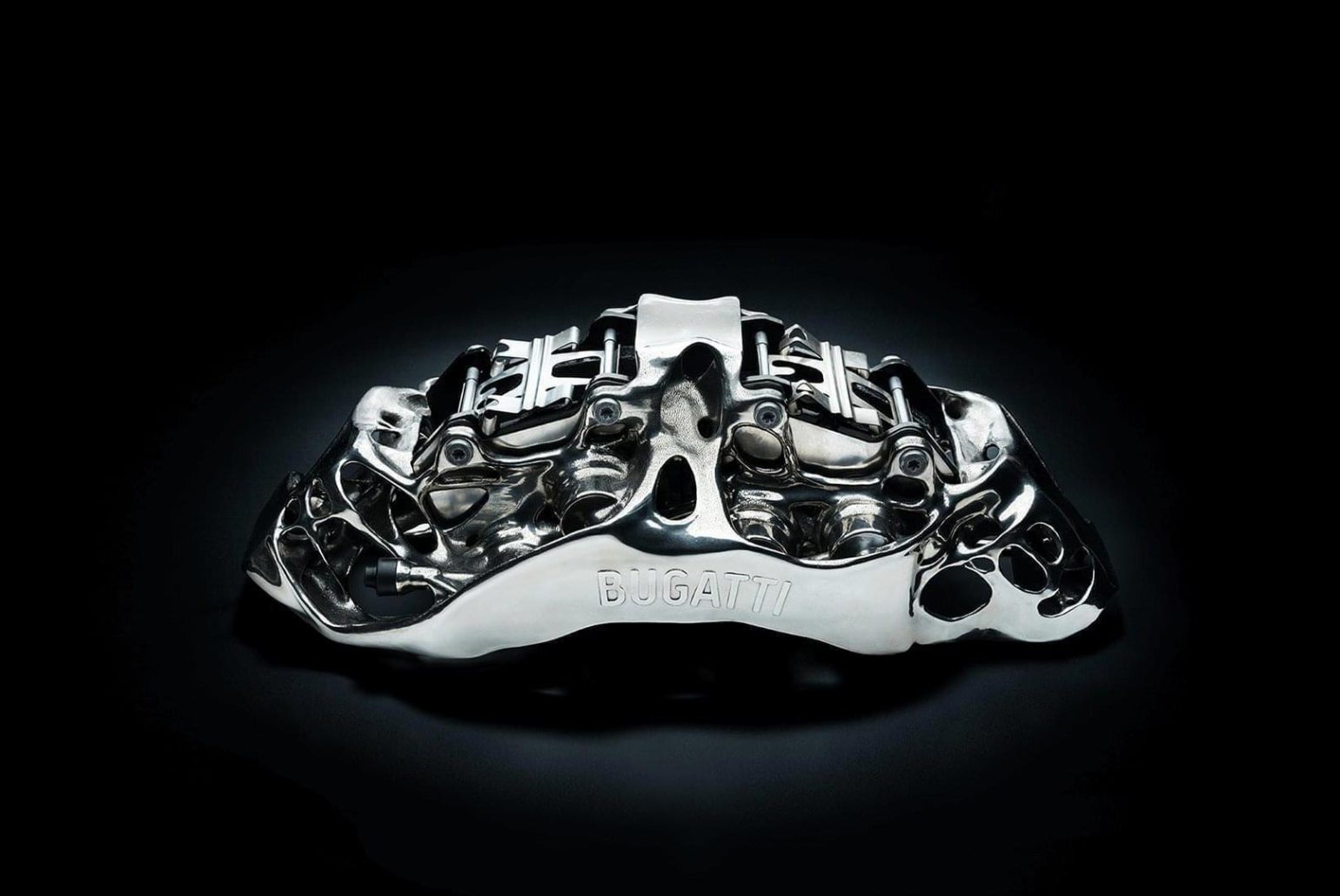The Future of Automotive and Motorcycle Manufacturing?
I grew up around tool and die makers, machinists, and other people working in the trades. When I think of building or manufacturing things, I think of taking a piece of raw material, reducing it down, bending, and crafting it into the desired item.
Additive manufacturing, which is exactly what 3D printing is, isn’t my first thought when it comes to manufacturing. Instead of removing material to make a piece you add material slowly to create something. This type of manufacturing is likely the future, and Bugatti has 3D printed a brake caliper.
The eight-piston monobloc brake caliper itself is interesting. It’s made of a special kind of titanium that was difficult to work with previously because of the inability to mill the material. With 3D printing, you can now more easily use it to make intricate parts.
Bugatti’s process consists of using 400-watt lasers to build the brake caliper. There are over 2,200 layers of titanium material that make up the part. It takes about 45 hours to print the caliper and then another 11 hours to finish it.
The Future of Motorcycle Manufacturing?
While Bugatti’s 3D printed brake caliper is interesting and a legitimate achievement, it has me wondering how this will change motorcycle manufacturing in the future.
We’ve seen some 3D printed motorcycles already. The German business BigRep recently unveiled its fully-3D printed, fully electric motorcycle prototype through its NOWLAB consultancy. That bike used thermoplastic material, and the only parts that weren’t 3D printed were the electrical components, including the electric motor.
Could the future of motorcycle manufacturing look like a mashup of NOWLAB’s motorcycle and Bugatti’s 3D titanium printing process?
A part of me hopes so, and another part of me wonders how these manufacturing processes would impact the design and performance of the bikes. If it makes bikes safer, faster, and cheaper, I’m all for it. If it’s going to add unneeded complexity and cost to the finished products, I’m not.
It will be interesting to see if VW, which owns Bugatti, tries this manufacturing process on any of its other companies, like Ducati. A Ducati superbike with some titanium 3D-printed Bugatti brake calipers sounds pretty cool to me. That said, I bet it’d be one expensive motorcycle.



No Comment